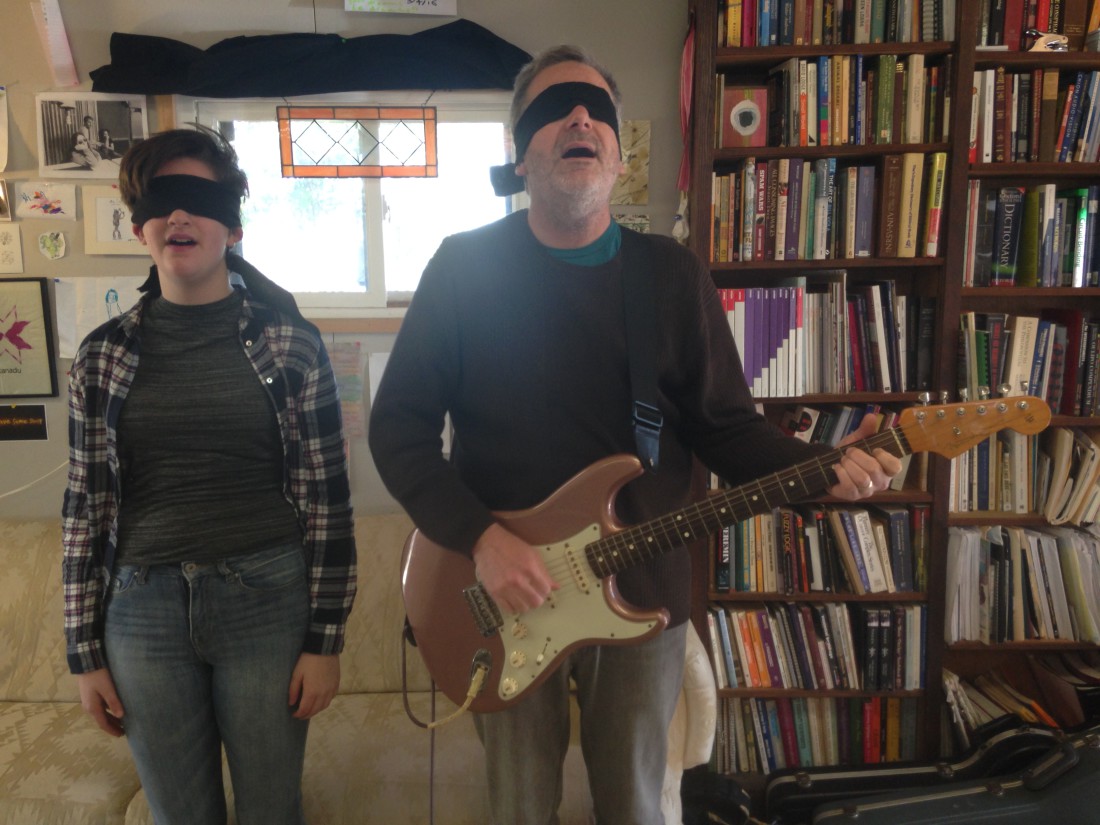Artist and educator Josef Albers, a prominent teacher at Black Mountain College from 1933-49, would sometimes announce to his students at breakfast that the normal program of classes and activities would be suspended. Mary Brett Daniels, a student at the influential school, told researcher Robert Sunley that those breaks (known as interludes) were “a community response to this build-up of intensity.” She explained in a 1997 interview, “It was understood — again by custom, not by rule — that people would do something of their own devising, perhaps creative, perhaps climb the ridge.”
Using Albers’ interlude concept as a model, Black Mountain College Museum + Arts Center and the Media Arts Project will break from their regularly scheduled annual fundraiser, the {Re}Happening. In its place, Interlude, held in downtown Asheville, offers works by more than 30 artists over the event’s three weeks. Programs ranging from performance pieces and conceptual quilts to walking tours and an interactive sound space, kick off on Friday, April 8, with DeWayne Barton‘s interactive sculpture, “Mirror, Mirror — Why Have You Cursed Me?”
Barton, an Asheville local working to build a community of diversity in “Affrilachia,” will be creating the piece for the duration of the three weeks of Interlude, developing compositions of found objects to ask questions about race and stereotypes.
Meanwhile, Anam Cara Theatre Company will explore the artist’s classic dilemma with Faust Foutu, a satire by Robert Duncan who briefly attended Black Mountain College. The piece was first performed in 1955 by a group of poets and painters in San Francisco. “Faust, in this version of the story, is a Beat-era abstract expressionist painter who gains financial success from his work,” says Kim Hartley, the dramaturge for the local production. But he “struggles throughout the play with what it means to be true to himself as an artist.”
Just as the play’s main character questions what it means to be an artist, so did those who were working at Black Mountain College. In 1935, after two years of teaching at the school, Albers said that it was time to make a change in art education. The German-born artist had studied and then taught at the Bauhaus art institution before emigrating to the U.S. to escape the Nazi regime. He called for a “move from looking at art as a part of historical science to an understanding of art as a part of life,” according to a manuscript that was published by his foundation. He went on to explain that the aim of Black Mountain College was to develop “open-eyed and open-minded youth.”
Now, 80 years later, Black Mountain College-inspired artists continue to push the boundaries of artmaking. Interlude celebrates those innovators and explorers.
In a 24-hour-long performance Curt Cloninger, a UNC Asheville professor of new media who is also on the board of Black Mountain College Museum + Arts Center, will present Day-Long Duet (The Day The World Went Away). For the piece, two performers will be onstage, blindfolded, singing and playing a segment from the Nine Inch Nails song “The Day the World Went Away.”
Cloninger has been doing a series of what he calls “Pop Mantra” performances since 2008. His upcoming show will be the longest one to date, with a schedule of rotating performers allowing him to go beyond his previous record of eight hours. “Certain parts of pop songs always affect me, excite me, break my heart, make me hopeful, etc.,” Cloninger says. He describes the selection of a short segment of a song, repeated over and over, as a “brute force approach to language” that tries to get beyond the words’ meaning.
“Language is always also doing something in addition to simply meaning something,” Cloninger says. “It’s always trying to make things happen in the world.” For this performance, he chose this line, “Na na na na na na.” In previous stagings, the repetition was a way to get beyond the meaning of words. This time, Cloninger seeks to break new ground.
“If you take a nonword like ‘na’ and repeat it over and over and over long enough, could it ever achieve an epic force that has nothing to do with what it ‘means’ — since it doesn’t really ‘mean anything?” he asks. Such extreme repetition lives somewhere between an OCD habit and a Buddhist prayer, but the videos of prior performances on Cloninger’s website show that his art events are unpretentious despite being conceptual.
Leading up to Interlude, organizers pointed to the works of other Black Mountain College figures such as composer John Cage, sculptor Ruth Asawa and architect Buckminster Fuller. “[Their] spirit can be used effectively through representative tribute, as well as through critical exploration of the challenges of contemporary art making,” explained the call to artists. As the event prompts participants to consider works that explore the edges of artmaking, Cloninger quotes media arts theorist Gene Youngblood (who wrote about Black Mountain College student and experimental filmmaker Stan Vanderbeek): “All art is experimental, or it isn’t art.”
WHAT: Interlude
WHERE: Various locations around Asheville
WHEN: Friday, April 8 through Friday, April 29. See interludeavl.com for schedule. $15 one-day pass / $60 all-happenings pass




Before you comment
The comments section is here to provide a platform for civil dialogue on the issues we face together as a local community. Xpress is committed to offering this platform for all voices, but when the tone of the discussion gets nasty or strays off topic, we believe many people choose not to participate. Xpress editors are determined to moderate comments to ensure a constructive interchange is maintained. All comments judged not to be in keeping with the spirit of civil discourse will be removed and repeat violators will be banned. See here for our terms of service. Thank you for being part of this effort to promote respectful discussion.